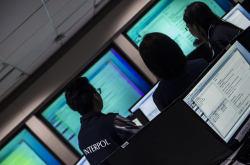SINGAPORE – Being spied upon through one’s computer or phone is easily the stuff of nightmares.
Nevertheless, ‘stalkerware’ – commercial software that allows someone to secretly monitor others through their devices – is a real threat that has spread rapidly during the global COVID-19 pandemic.
A spike in stalkerware activity
Since the beginning of the pandemic, there has been a marked increase in the use of stalkerware, closely associated with a parallel increase in domestic violence cases during lockdowns.
Cybersecurity company Malwarebytes recorded a peak increase in the use of monitoring apps and spyware from January 1 to June 30 2020, finding a 780% increase in monitor apps detections, and a 1,677% increase in spyware detections.
Meanwhile, Avast Threat Labs has found a 55% increase in stalkerware since the start of the COVID-19 pandemic.
Seven in ten women who have experienced cyber stalking have also experienced at least one form of physical or sexual violence from an intimate partner, according to the European Institute for Gender Equality.
Domestic violence has intensified since the outbreak of the pandemic, with the United Nations calling violence against women during COVID-19 a “shadow pandemic”.
At the same time, a recent UK survey conducted by Certo Software shows that only 31% of people surveyed thought that spying on someone else’s phone was illegal.
Global, collective action
Fighting against the multifaceted issue of stalkerware requires global and collective action from law enforcement, cybersecurity vendors, information technology security firms, non-governmental organizations, and academia.
For this reason, several key actors in the global cybersecurity ecosystem have come together and created the Coalition Against Stalkerware to protect users against this malevolent software.
The key goals of this coalition are twofold: focusing on improving the detection and mitigation of stalkerware on the one hand and, on the other, raising broader awareness of the issue alongside organizations that work directly with victims and survivors.
Given the important role that law enforcement plays in protecting people, identifying threats and holding perpetrators accountable, the Coalition invited INTERPOL to support this effort.
“INTERPOL is committed to supporting the Coalition Against Stalkerware in its fight against abuse, stalking and harassment via the use of stalkerware,” said Stephen Kavanagh, INTERPOL’s Executive Director of Police Services.
“To this end, we will continue to raise awareness within the global law enforcement community about intimate partner violence and unwanted surveillance and abuse,” Mr Kavanagh added.
INTERPOL will also promote training sessions developed by the coalition to its 194 member countries to enhance the ability to investigate the use of stalkerware, support victims requesting assistance, and hold perpetrators accountable.
“We understand that all key partners must join together to fight against this pervasive tactic of abuse,” said Tara Hairston, Official Representative of the Coalition Against Stalkerware, Head of Public Affairs, North America at Kaspersky. “Alongside INTERPOL and our other partners, we will work to ensure no survivor ever has to fall victim to stalkerware again.”
The founding members of the Coalition include Avira, the Electronic Frontier Foundation, the European Network for the Work with Perpetrators of Domestic Violence, G DATA Cyber Defense, Kaspersky, Malwarebytes, the US National Network to End Domestic Violence, NortonLifeLock, Operation Safe Escape, and WEISSER RING.





